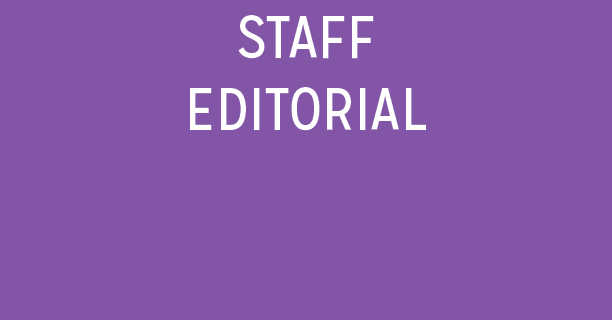As many seniors start to receive their college acceptance letters and plan out the next step of their lives, another concern arises: the cost. College is far from inexpensive; average in-state tuition costs with room and board are near $15,000 per year while out-of-state and private colleges can climb up to $70,000 per year, according to U.S. News and World Report.
Although the cost of college is a big hurdle, thankfully, there are many ways to receive help, whether it be through merit scholarships, loans or financial aid. One major component is financial aid from the federal government, in the form of the Free Application for Federal Student Aid (FAFSA). FAFSA supplements the college cost by giving financial aid to students who intend to enroll in postsecondary education.
 However, many students decide against filling out the FAFSA. According to the Indiana Department of Education, almost half of CHS seniors last year did not fill it out. Whether it be FAFSA’s perceived loopholes or the belief that they simply won’t receive any aid, far too many students are missing out on a chance to help pay for their college tuitions.
However, many students decide against filling out the FAFSA. According to the Indiana Department of Education, almost half of CHS seniors last year did not fill it out. Whether it be FAFSA’s perceived loopholes or the belief that they simply won’t receive any aid, far too many students are missing out on a chance to help pay for their college tuitions.
Certainly, FAFSA does not come without its problems. It neither takes into account the age of parents, even as they come close to retirement and their incomes decrease, nor the cost of the college an applicant is planning to attend. However, in addition to the already comprehensive process, everyone is able to re-apply for the FAFSA every year. Therefore, even if circumstances change, each applicant can expect the most accurate expected contribution possible each year.
According to CHS college and career resource counselor Harry Pettibone, most students do not apply because they do not think they will receive any aid from FAFSA. However, the FAFSA acts as an insurance policy. Circumstances can always change. Parents can lose or be demoted from jobs, family members can fall ill, and other unexpected circumstances can occur. If that happens, filling out the FAFSA gives colleges, state and federal government and third party sources a database, enabling them to give more financial aid to assist a student with an unexpected situation. However, if that student did not fill out the FAFSA, he or she is out of luck.
Don’t be that student. Especially at CHS, there is a general sense of security, but no matter how sure you are that everything will be okay or that you will not qualify for federal aid, fill out the form anyway. The extra 20 minutes it will take to fill out the FAFSA is well worth being prepared in case the unexpected occurs. The FAFSA is basically free insurance; do not pass that up.

































![AI in films like "The Brutalist" is convenient, but shouldn’t take priority [opinion]](https://hilite.org/wp-content/uploads/2025/02/catherine-cover-1200x471.jpg)









































![Review: “The Immortal Soul Salvage Yard:” A criminally underrated poetry collection [MUSE]](https://hilite.org/wp-content/uploads/2025/03/71cju6TvqmL._AC_UF10001000_QL80_.jpg)
![Review: "Dog Man" is Unapologetically Chaotic [MUSE]](https://hilite.org/wp-content/uploads/2025/03/dogman-1200x700.jpg)
![Review: "Ne Zha 2": The WeChat family reunion I didn’t know I needed [MUSE]](https://hilite.org/wp-content/uploads/2025/03/unnamed-4.png)
![Review in Print: Maripaz Villar brings a delightfully unique style to the world of WEBTOON [MUSE]](https://hilite.org/wp-content/uploads/2023/12/maripazcover-1200x960.jpg)
![Review: “The Sword of Kaigen” is a masterpiece [MUSE]](https://hilite.org/wp-content/uploads/2023/11/Screenshot-2023-11-26-201051.png)
![Review: Gateron Oil Kings, great linear switches, okay price [MUSE]](https://hilite.org/wp-content/uploads/2023/11/Screenshot-2023-11-26-200553.png)
![Review: “A Haunting in Venice” is a significant improvement from other Agatha Christie adaptations [MUSE]](https://hilite.org/wp-content/uploads/2023/11/e7ee2938a6d422669771bce6d8088521.jpg)
![Review: A Thanksgiving story from elementary school, still just as interesting [MUSE]](https://hilite.org/wp-content/uploads/2023/11/Screenshot-2023-11-26-195514-987x1200.png)
![Review: "When I Fly Towards You", cute, uplifting youth drama [MUSE]](https://hilite.org/wp-content/uploads/2023/09/When-I-Fly-Towards-You-Chinese-drama.png)
![Postcards from Muse: Hawaii Travel Diary [MUSE]](https://hilite.org/wp-content/uploads/2023/09/My-project-1-1200x1200.jpg)
![Review: "Ladybug & Cat Noir: The Movie," departure from original show [MUSE]](https://hilite.org/wp-content/uploads/2023/09/Ladybug__Cat_Noir_-_The_Movie_poster.jpg)
![Review in Print: "Hidden Love" is the cute, uplifting drama everyone needs [MUSE]](https://hilite.org/wp-content/uploads/2023/09/hiddenlovecover-e1693597208225-1030x1200.png)
![Review in Print: "Heartstopper" is the heartwarming queer romance we all need [MUSE]](https://hilite.org/wp-content/uploads/2023/08/museheartstoppercover-1200x654.png)







http://google.co.uk • Jan 23, 2016 at 1:06 pm
If there’s one constant dilemma we get from clients, it really is “How much money will we have to used in the business Thankfully that exclusive lenders have become back into the enterprise and this may be a good thing for young students and their parents who are looking to borrow confidential money to supplement their own federal financial loans, once they’ve utilized their own federal mortgage loan capacity